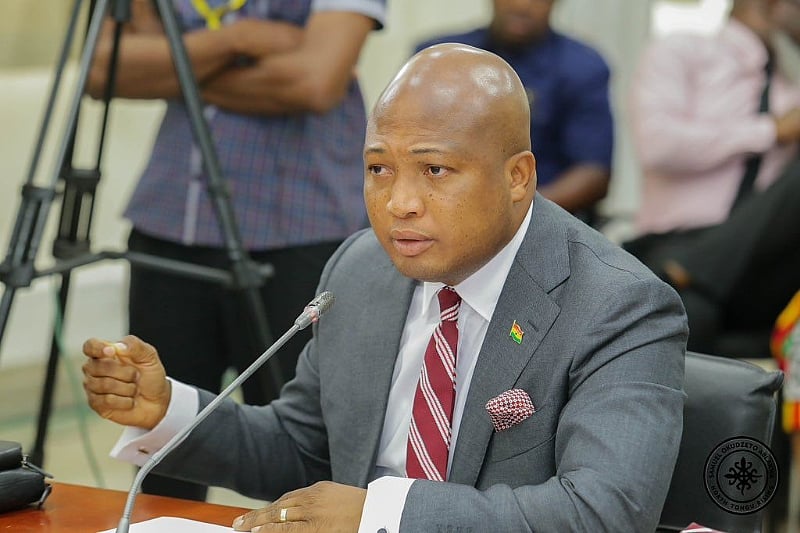Samuel Okudzeto Ablakwa, Member of Parliament for North Tongu and Minister-designate for Foreign Affairs, has vehemently refuted allegations made by the Minority caucus in Parliament regarding his residential status. The Minority, led by Alexander Afenyo-Markin, held a press conference challenging Ablakwa’s assertion that he rents a property in the upscale Airport Hills neighborhood of Accra, claiming that properties in that area are exclusively for sale, not rent. Ablakwa has dismissed these accusations as “infantile fabrications” and a desperate attempt to smear his reputation. He has boldly challenged the Minority, stating his willingness to undergo a second vetting process should they deem it necessary, emphasizing his confidence in the transparency of his actions.
The core of the contention revolves around Ablakwa’s declaration during his vetting process that he rents a property in Airport Hills. The Minority’s challenge to this statement appears to insinuate a discrepancy between Ablakwa’s declared financial standing and the perceived cost of residing in such an affluent area. By questioning the possibility of renting within Airport Hills, the Minority seemingly aims to cast doubt on Ablakwa’s financial disclosures and potentially insinuate impropriety. Ablakwa, however, remains unfazed, highlighting the Minority’s conspicuous absence during his parliamentary vetting, a forum specifically designed to address such inquiries.
Ablakwa underscores the Minority’s missed opportunities to scrutinize his financial dealings. He points to their prior eight-year tenure in government, during which they held the power to investigate and prosecute any perceived wrongdoing. Their failure to initiate any legal action against him, Ablakwa argues, reinforces the baselessness of their current accusations. He portrays their recent press conference as a desperate attempt to tarnish his reputation after their previous avenues of inquiry yielded no incriminating evidence. This, he asserts, demonstrates the hollowness of their allegations and their reliance on “smear tactics” rather than substantive evidence.
Furthermore, Ablakwa connects these accusations to his active role in parliamentary oversight, particularly his vocal stance against alleged corruption within the previous administration. He suggests that the Minority’s attacks are motivated by his relentless pursuit of accountability and his commitment to safeguarding public resources. He frames his work as a constitutional duty, emphasizing his dedication to protecting state assets and upholding the principles of transparency and good governance. Ablakwa posits that his unwavering commitment to truth and justice has made him a target for those seeking to silence his critical voice.
Ablakwa’s defiant stance reflects a broader political dynamic within Ghana’s parliamentary system. His proactive approach to oversight, often targeting alleged corruption, has positioned him as a prominent figure in holding government officials accountable. This, however, has also made him a subject of scrutiny and political maneuvering, with opposing factions attempting to discredit his efforts. The current dispute over his residential status exemplifies the often contentious nature of political discourse, where personal matters can become intertwined with broader political agendas.
In essence, the clash between Ablakwa and the Minority underscores the complexities of political accountability in Ghana. While Ablakwa defends his actions as a legitimate exercise of parliamentary oversight, the Minority portrays them as a potential source of conflict of interest. This ongoing debate highlights the challenges of balancing transparency and accountability with the potential for politically motivated accusations. Ablakwa’s willingness to undergo further scrutiny, coupled with his emphasis on his track record, suggests a determination to uphold his reputation amidst political pressures.














